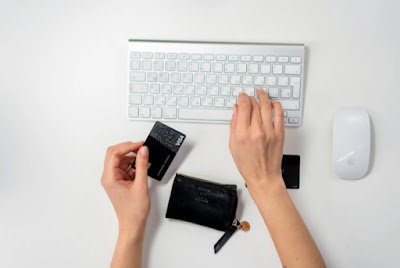How Can You Step Up Your Online Privacy?
Image from Pexels - CC0 License
Keeping your privacy online isn't always easy. There are always companies and people out there trying to get hold of your information and sell you anything they can. Maintaining your privacy can help you avoid the barrage of ads, and it's also useful for protecting you from any unsavory people you might not want to be in contact with. Fortunately, there are lots of ways you can be more private online to protect your personal information. If you're smart about it, you can prevent people from knowing everything from who you bank with to your date of birth. But with so many people out to try and get as much info as possible from you, how do you stop them?
Be More Careful About the Info You Give Out
Not too long ago, we were cautioned about giving out details such as our real names, dates of birth, and locations. Now, we're encouraged to share this information with many websites and applications. Keeping this type of information safe is harder than ever, and we often give companies permission to use it without even realizing it. If you want to be more private online, being a little more careful about who you share private information with is important. This should include not just watching what information you give up freely but what you might accidentally give away too, for example, in photos that you upload.
Add an Extra Layer of Protection to Devices
No matter what sort of device you're using, there are things you can do to protect it when you're online. One of the best steps you can take is to use a safe VPN to add an extra layer of protection to your device. When you use a VPN, you prevent any security problems by encrypting your connection and any requests for information. It's a great way to stay anonymous online and keep your personal information private at all times. Using a VPN is simple, requiring you to only download it and ensure you have an account to turn it on.
Control Cookies and Ads
Thanks to some recent regulations, we can have a lot more control over the cookies that are put on our devices. Regulations like the EU's GDPR and California's CCPA mean that websites have to make it easier for you to pick and choose which cookies you want to accept. Taking advantage of this can help you improve privacy and prevent your activities from being tracked. It also puts you in control of what adverts you see, as it can prevent remarketing. Another great way to control which ads you see is by using an ad-blocking browser extension.
Image from Pexels - CC0 License
Only Connect to Safe Networks
As you move around, you can connect to various different networks, either on purpose or accidentally. You might know that some of these networks are safe, including your home or work networks. But there are others that might not be as safe as you want and need them to be. That's why it's important to be careful about which ones you connect to. Connecting to public networks should be something you do with caution. Using a VPN and ensuring you have the appropriate antivirus software is a must if you want to maintain your privacy on any network.
Use Private Messaging
Messaging apps are excellent for communicating with friends, family, coworkers, and more. But if the app you use isn't secure, you could find that there's a possibility your data isn't as safe as you'd like it to be. Be careful with which apps you choose to use if you want to maintain your privacy. Apps such as WhatsApp and Telegram should provide the security you're looking for. You don't have to look outside of some of the most popular apps, although that doesn't mean that all of the big apps are as secure as each other.
Check Your App Permissions
When you install a new app on your phone, it will likely ask for certain permissions. It might want access to your camera, your location, or your contacts. Sometimes you might be aware of which apps have permission to do what, but that's not always the case. You can go into the settings on your phone and get an overview of which apps have which permissions. It's a good idea to do this regularly so that you can make any changes if you need to.
Taking a few more steps to maintain your privacy online can help you protect your personal information and stay safe.





Comments
Post a Comment